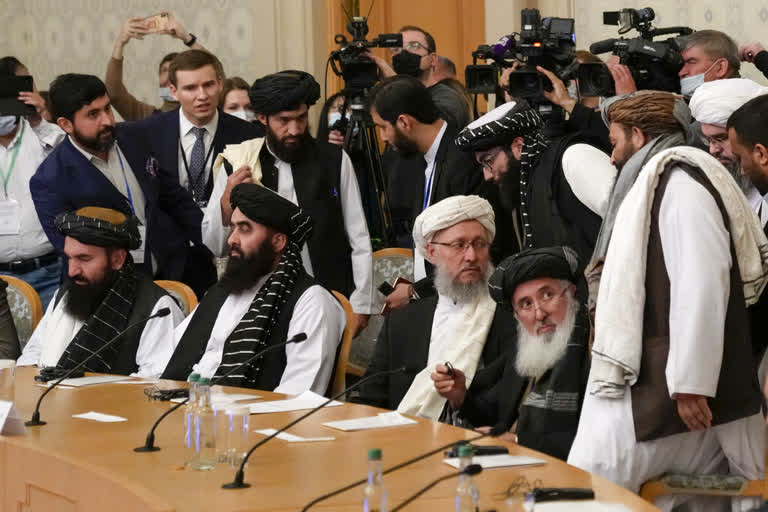New Delhi: Russia on Wednesday hosted the third meeting of the Moscow Format Consultations on Afghanistan, which saw the participation of special representatives from Russia, China, Pakistan, Iran, India, Kazakhstan, Kyrgyzstan, Tajikistan, Turkmenistan and Uzbekistan, as well as a high-level delegation of the interim Afghan government.
According to the statement issued by the Ministry of Foreign Affairs of the Russian Federation, all the sides reiterated their respect to the sovereignty, independence and territorial integrity of Afghanistan, and reaffirmed their commitment to Afghanistan as a peaceful, indivisible, independent, economically developing State, free of terrorism and drug-related crime and respecting the basic norms in the human rights area.
It was stated that further practical engagement with Afghanistan needed to take into account the new reality that the Taliban has come to power in the country.
READ: The economy on the brink, Taliban rely on former technocrats
Participating countries also called on the current Afghan leadership to take further steps to improve governance and to form a truly inclusive government that adequately reflects the interests of all major ethnopolitical forces in the country. This will be a fundamental prerequisite for the completion of the national reconciliation process in Afghanistan.
The countries further urged the current Afghan leadership to practise moderate and sound internal and external policies, adopt friendly policies towards neighbours, achieve the shared goals of durable peace, security, safety, and long-term prosperity, and respect the rights of ethnic groups, women and children.
Being concerned about the activities of proscribed terrorist organisations in Afghanistan, the sides reaffirmed their willingness to continue to promote security in Afghanistan to contribute to regional stability.
READ: India to attend the upcoming Moscow format on Afghanistan, says MEA
Expressing deep concern over the deteriorating economic and humanitarian situation in Afghanistan, the representatives from the countries expressed confidence in the need for the international community to mobilise consolidated efforts to provide urgent humanitarian and economic assistance to the Afghan people in the post-conflict reconstruction of the country.
In this context, the sides have proposed to launch a collective initiative to convene a broad-based international donor conference under the auspices of the United Nations as soon as possible, certainly with the understanding that the core burden of post-conflict economic and financial reconstruction and development of Afghanistan must be shouldered by troop-based actors which were in the country for the past 20 years.



